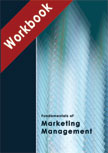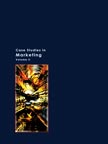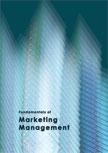McDonald's Advertising Strategy - The 'Lost Ring' Campaign




|
|
ICMR HOME | Case Studies Collection
To download McDonald's Advertising Strategy - The 'Lost Ring' Campaign case study
(Case Code: MKTG215) click on the button below, and select the case from the list of available cases:

» Marketing Case Studies
» Marketing Management Short Case Studies
» View Detailed Pricing Info
» How To Order This Case
» Business Case Studies
» Case Studies by Area
» Case Studies by Industry
» Case Studies by Company
Please note:
This case study was compiled from published sources, and is intended to be used as a basis for class discussion. It is not intended to illustrate either effective or ineffective handling of a management situation. Nor is it a primary information source.
|
Case Details:
|
Price: |
| Case Code |
: |
MKTG215 |
For delivery in electronic format:
Rs. 300;
For delivery through courier (within India): Rs. 300 + Rs. 25 for Shipping & Handling ChargesThemes
Marketing Communications \ Advertising |
| Case Length |
: |
15 Pages |
| Period |
: |
2007-08 |
| Pub Date |
: |
2009 |
| Teaching Note |
: |
Not Available |
| Organization |
: |
McDonald 's Corporation |
| Industry |
: |
Food and Beverage |
| Countries |
: |
USA |
Abstract:
|
The case focuses on the alternate reality game (ARG) named
'The Lost Ring' sponsored by the US-based fast food company McDonald's.
McDonald's, as a part of its multi-pronged marketing campaign to commemorate
four decades of association with the Olympic Games, decided to be a part of the ARG, The Lost Ring.
The ARG that began in March 2008 attracted gamers from all over the world. The
game started with a series of clues that led to hidden artifacts across the
world, and finally to solving the mystery that involved finding the sixth
Olympic ring. The story was woven around amnesiac athletes from parallel worlds,
lost Olympic sport, Greek mythology, labyrinths, Esperanto language etc.
|
|
To solve the mysteries, the participants had to search for clues both online and offline. Over three million people from 100 countries across the world participated actively in solving the mysteries. The associated websites received millions of blog and media impressions. Though McDonald's was involved in the game right from the beginning, the fact that it was sponsoring the ARG was revealed much later. All through the ARG, no reference was made either to McDonald's or its products, which left analysts wondering how McDonald's could have benefited from its involvement in the whole event. Some of analysts termed it as
'Dark Marketing,' as the presence of McDonald's was barely felt through the entire event.
Issues:
» Understand the emerging trends in advertising in a web-enabled world.
» Evaluate using ARG as a promotion and advertising tool.
» Analyze the pros and cons of using ARG for marketing.
» Examine how ARGs can be used as an audience engagement tool.
Contents:
Keywords:
McDonald's, Alternate Reality Gaming, Beijing Olympic Games, Advertising Strategy, Multi-pronged Marketing,
'The Lost Ring', Web 2.0, Jane McGonigal, AKQA, The International Olympic Committee, Lost sport, Bloggers, Dark Marketing, Web-enabled Tools, Audience Engagement
McDonald's Advertising Strategy - The 'Lost Ring' Campaign
- Next Page>>
|
|



